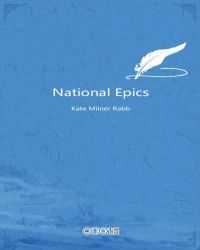PARADISE REGAINED.
您可以在百度里搜索“National Epics 艾草文学(www.321553.xyz)”查找最新章节!
PARADISE REGAINED.
"A cold and noble epic."—TAINE.
Paradise regained was written by Milton, judging from a passage in the Autobiography of Thomas Ellwood, in the winter of 1665-6, but was not published until 1671. It was printed at Milton's expense in a small volume together with Samson Agonistes.
Paradise Regained tells the story of Christ's temptation in the Wilderness, and the material was taken from the accounts of Matthew and Luke, which the poet, with great skill, expanded without essentially deviating from them.
The title has been criticised on the ground that the poem should have extended over the whole of Christ's life on earth. But Paradise Regained was written as a sequel to Paradise Lost, and, as in the first poem the poet showed that Paradise was lost by the yielding of Adam and Eve to Satan, so in the second, he wished to show that Paradise was regained by the resistance of Christ to temptation, Satan's defeat signifying the regaining of Paradise for men by giving them the hope of Christ's second coming. Therefore the poem naturally ends with Satan's rebuff and his final abandonment of the attempt on the pinnacle of the Temple.
The poem has been criticised for its shortness, some scholars even affecting to believe it unfinished; its lack of variety, in that it has but two characters, its lack of action, and the absence of figurative language.
But with all these faults, it has a charm of its own, entirely different from that of Paradise Lost. Satan has degenerated during his years of "roaming up and down the earth;" he is no longer the fallen angel of Paradise Lost, who struggled with himself before making evil his good. He is openly given over to evil practices, and makes little effort to play the hypocrite. His temptations are worked up from that of hunger to that of the vision of the kingdoms of the earth with a wonderful power of description which makes up for the lack of action and the few actors. The pathless, rockbound desert, the old man, poorly clad, who accosts the Christ, the mountain-top from which all the earth was visible, the night of horror in the desert, and the sublime figure of the Savior, are all enduring pictures which compensate for any rigidity of treatment. If figurative language is omitted it is because the theme does not need it, and does not show that the poem is less carefully finished than Paradise Lost. Its lack of action and similarity of subject to the longer poem sufficiently account for its not meeting with popular favor. Johnson was correct when he said, "had this poem been written not by Milton, but by some imitator, it would have claimed and received universal praise." National Epics


